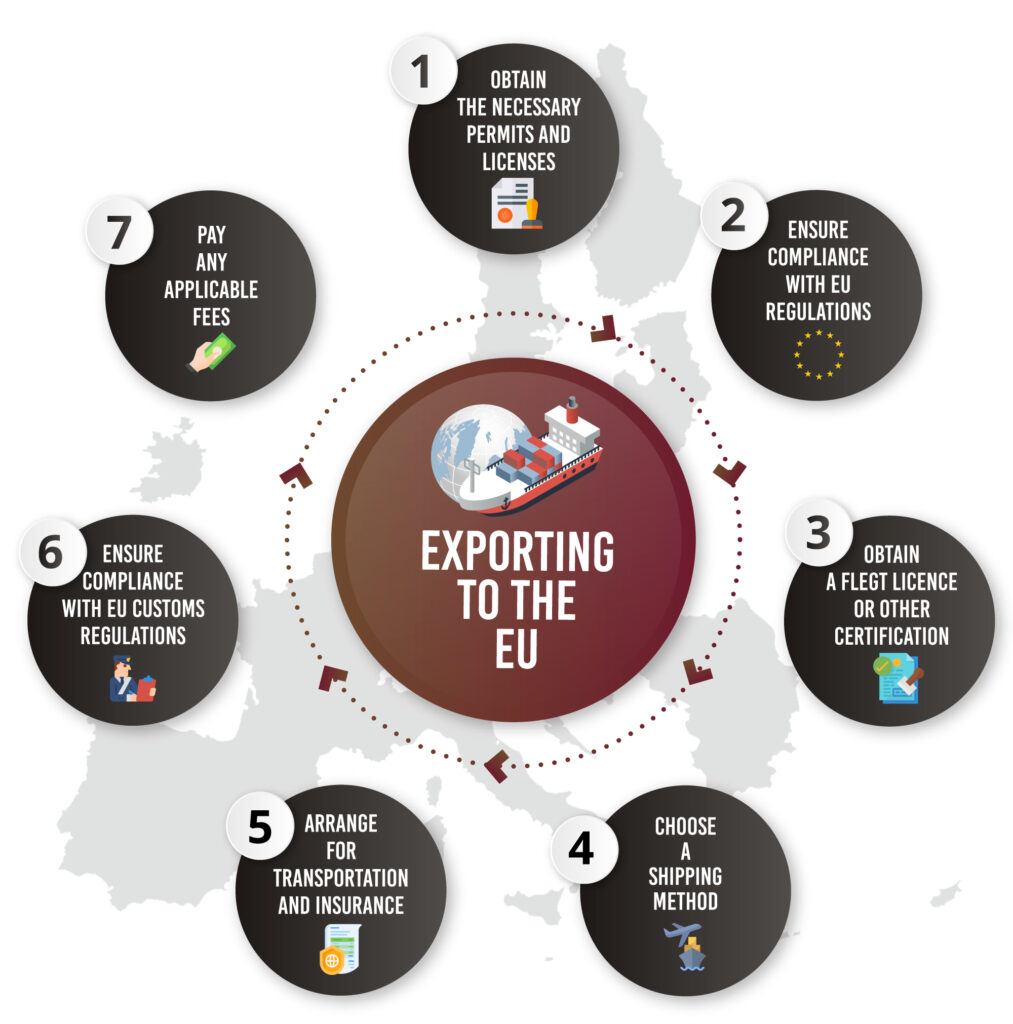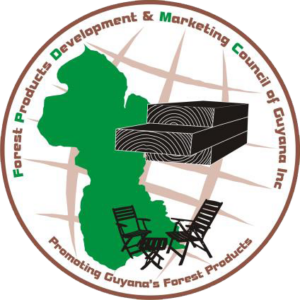
- Obtain necessary permits and licenses: To export timber products to the EU, you’ll need to obtain a Timber Sales Agreement and a Forest Produce License from the Guyana Forestry Commission (GFC). These licenses authorize the harvesting and export of timber products from Guyana.
- Ensure compliance with EU regulations: The EU has regulations in place to prevent illegal logging and promote sustainable forestry practices. To export timber products to the EU, you’ll need to ensure that your timber products comply with these regulations. The EU Timber Regulation (EUTR) requires that timber imports into the EU be legal and from verified sources. The Forest Law Enforcement, Governance and Trade (FLEGT) initiative also provides a voluntary licensing scheme for timber exports from countries that have entered into a partnership agreement with the EU.
- Obtain a FLEGT license or other certification: To demonstrate compliance with EU regulations, you may need to obtain a FLEGT license or other certification. A FLEGT license is issued by the country of origin and certifies that the timber was legally harvested and exported. Other certifications, such as the Forest Stewardship Council (FSC) certification, can also demonstrate compliance with EU regulations.
- Choose a shipping method: There are several options for shipping timber products to the EU, including air freight and sea freight. You’ll need to choose a method that is appropriate for the volume of timber products you’re exporting and the timeline for delivery.
- Arrange for transportation and insurance: Once you’ve chosen a shipping method, you’ll need to arrange for transportation and insurance for your timber products. This may involve working with a freight forwarder or shipping agent.
- Ensure compliance with EU customs regulations: When your timber products arrive in the EU, they will need to clear customs. You’ll need to ensure that your timber products comply with EU customs regulations and that you have all the necessary documentation.
- Pay any applicable fees: Depending on the shipping method and other factors, you may need to pay fees for transportation, customs clearance, and other services.
Exporting timber products to the EU involves navigating several regulations and requirements. The FPDMC advises interested persons to work with experienced professionals to ensure compliance with all applicable laws and regulations.
